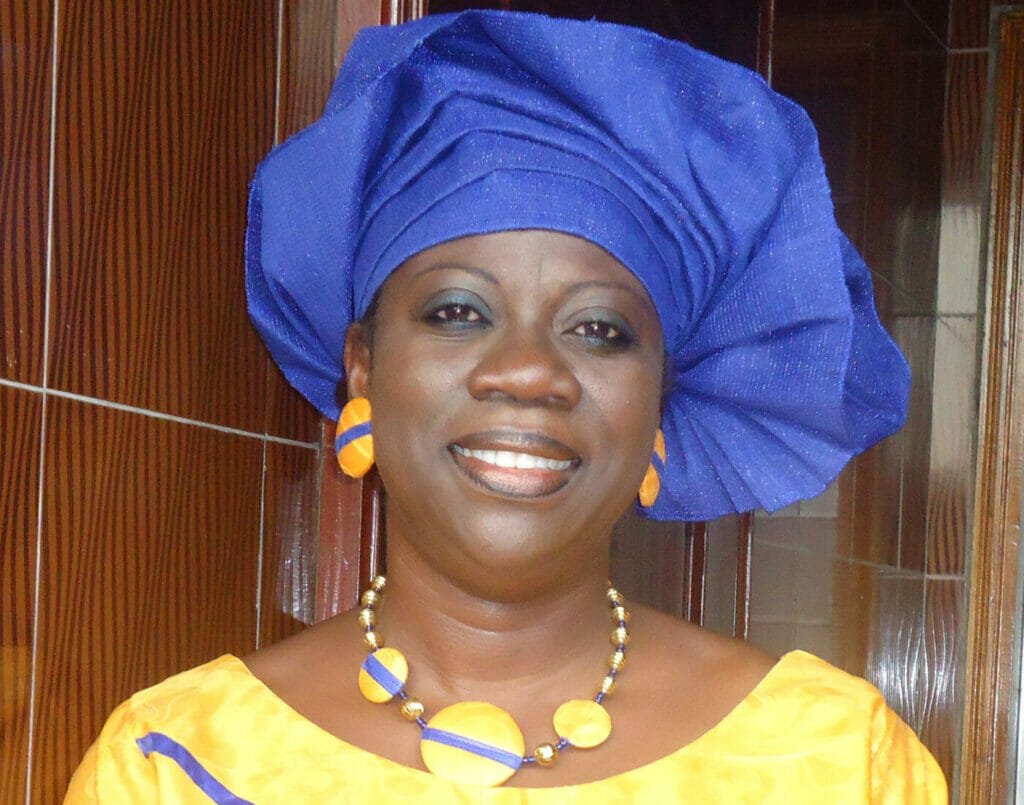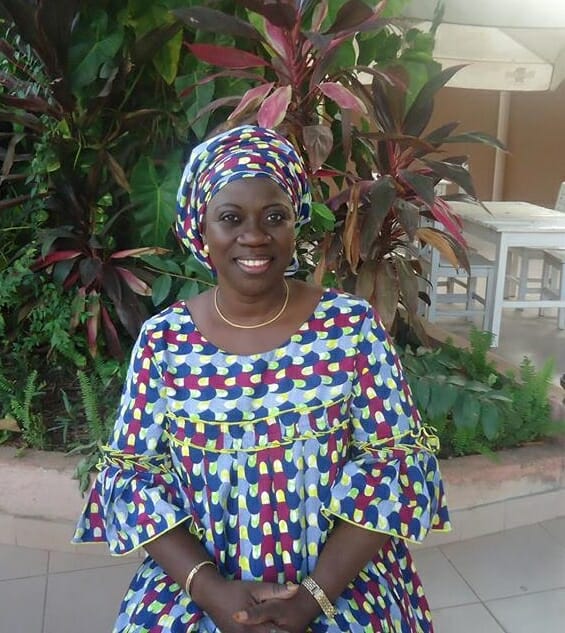Beninese English Teacher Taïbatou Osséni On Women’s Progress In Africa
BY USMAN MAMA
Taibatou Osseni, a 57-year-old Beninese secondary school English teacher, happily married for thirty years and the mother of two, tells The African Magazine’s Usman Mama about the progress made by African women and the challenges they still face.

The African Magazine: How would you assess the progress made by women over, say the past 2-3 decades: a little, somewhat or a lot?
I will definitely say “somewhat.” More women are aware of the important leadership role they have to play in their families, their governments and countries, and they are participating in decision-making at the political and economic levels. More women are holding important positions such as members of parliament, ministers, and presidents. They are more involved in politics and they are courageous enough to claim and stand for their rights. Even in societies where women traditionally depend financially on their spouses and stay at home to do house chores and take care of children, more women are working outside of their homes, doing income-generation activities and earning a living.
In many countries there is a big trend and push for women’s empowerment. Women’s groups are created and some emphasis is put on training, literacy and income-generating activities so that they can have access to resources that will enable them to become financially independent. Life has evolved and both men and women need to contribute to the household finances in order to make ends meet. In Benin for instance, thanks to the incredible work and efforts of the government, women’s associations and local and international NGOs in promoting girls’ education and women’s empowerment, we can say that some progress has been made.
There’s free schooling for girls and a big push for girls’ education so that they can become accomplished women in the future, women that can take care of the house, provide their children with good education, prepare them for a better life and still contribute to the development of their countries. Many laws for the protection of women’s rights have been enacted, although there’s still a lot to do to enforce laws that protect women from discrimination, sexual abuse, forced marriage and female genital mutilation. Women themselves need to stand up and fight for their rights by working together, not against each other, and supporting each other.
But women are still faced with some challenges, aren’t they?
There are many challenges facing the African woman today. The first one comes from the gender roles as defined in most African societies by our traditions, culture, and religions. Gender roles as defined in our societies have created inequalities and disparities between men and women. Most women, because of gender roles and stereotypes, do not feel empowered to achieve great dreams even though they are smart, brilliant, have a career and can emerge as leaders. There is a social pressure to shut women up indoors in their roles of household caretakers. And this tradition is continuing in some societies where girls do not attend school, and are forced into early marriage by women who are guardians of the traditions. Changing this mentality, this way of thinking, this mindset is a big challenge. And this should begin among women who are the ones responsible for children’s education—both boys and girls—and yet they are the ones perpetuating the disparities between men and women. How can women expect men to behave differently, to treat them as equals if they raise their sons and daughters differently, or if they consider their sons as the most privileged?
Most African women are facing the dilemma of being in a leadership position. They do not feel confident in their leadership abilities, because of the social pressure of maintaining them in their roles of housewife and mother. Many of them are not respected, even as leaders, just because they are women. Many African women are still discriminated against and earn less than men, in the same position and the same job.
Given all this, do most African women aspire to becoming equal to men?



